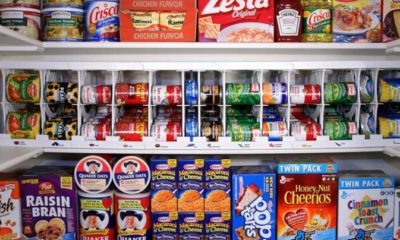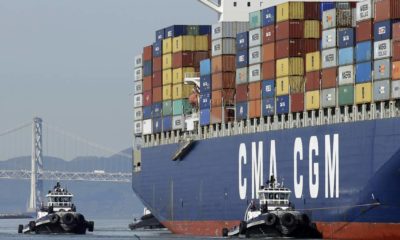Nigeria’s food import bill has surged to a five-year high in the first quarter of 2024, despite the federal government declaring a state of emergency on food production.
Data from the National Bureau of Statistics (NBS) reveals a 95.28 percent increase in food imports to N920.54 billion from January to March, compared to N471.39 billion in the same period last year.
This alarming rise comes amid soaring food inflation, which hit a record 40.5 percent in April, reflecting a 15.92 percent year-on-year increase.
The sharp inflation has left many Nigerians struggling to afford a balanced diet, exacerbating the food security crisis in Africa’s most populous nation.
In March, President Bola Ahmed Tinubu emphasized the government’s commitment to self-sufficiency in food production, stating that Nigeria would not rely on imports to stabilize prices.
“We will not allow the importation of food but rather turn the lack in the country into abundance,” Tinubu declared. However, the latest import figures suggest that this goal remains elusive.
The NBS Foreign Trade Statistics report highlights that the value of food imports via maritime, air, and land routes surged 29.4 percent from N711.4 billion in the fourth quarter of 2023.
Major agricultural goods imported included durum wheat from Canada and Lithuania, valued at N130.26 billion and N98.63 billion, respectively. Frozen blue whitings from the Netherlands accounted for N16.67 billion.
Wheat imports alone constituted N519.75 billion of the total food import bill. The average cost of wheat imports, a significant driver of the food import value, increased by 33 percent compared to the previous quarter’s value of N391.01 billion.
The rising importation of wheat reflects its popularity among Nigerian consumers amid skyrocketing prices of close substitutes like garri and rice.
Overall, Nigeria’s total imports for Q1 2024 amounted to N12.64 trillion, representing a 39.65 percent increase from N9.05 trillion in Q4 2023 and a 95.53 percent rise from N6.47 trillion in Q1 2023. Food imports accounted for 7.3 percent of total imports during the period under review.
The bulk of Nigeria’s imports came from Asia, China, Europe, America, and Africa. Mineral fuels topped the import category with N4.44 trillion, representing 35.09 percent of total imports.
Machinery and transport equipment followed with N3.17 trillion, contributing 25.08 percent, and chemicals and related products at N1.79 trillion, making up 14.13 percent of total imports.
Despite the federal government’s initiatives to boost local food production and reduce dependency on imports, the latest data underscores the persistent challenges facing Nigeria’s agricultural sector.

 Education4 weeks ago
Education4 weeks ago
 News3 weeks ago
News3 weeks ago
 Business3 weeks ago
Business3 weeks ago
 Technology3 weeks ago
Technology3 weeks ago
 Investment4 weeks ago
Investment4 weeks ago
 Investment3 weeks ago
Investment3 weeks ago
 Telecommunications4 weeks ago
Telecommunications4 weeks ago
 Banking Sector3 weeks ago
Banking Sector3 weeks ago





























